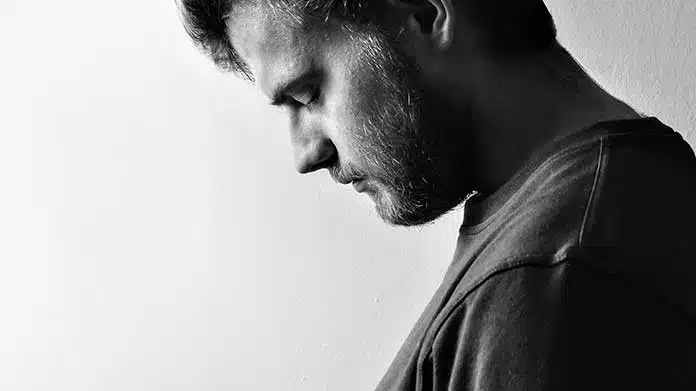Drugs, Alcohol, & Hitting Rock Bottom | What Happens Next?
- What Does Hitting Rock Bottom Mean?
- What Happens After You Hit Rock Bottom?
- Is Hitting Rock Bottom Necessary To Recovery?

When you’re addicted to alcohol or other drugs, life can quickly spiral out of control. You may abandon your hobbies, fall behind at work or school, and face serious conflicts with loved ones. At some point, you might even “hit rock bottom.”
Here’s what that phrase means and what to do about it.
What Does Hitting Rock Bottom Mean?
Hitting rock bottom means reaching your lowest point. This low point varies from person to person. If you have alcohol or drug addiction, you might feel you’ve hit rock bottom when:
- you get a DUI
- you lose your job
- your partner leaves you
- you become homeless
You’ll know you’ve hit your own rock bottom when you feel like things can’t get any worse. In the past, you might have denied your substance abuse or blamed your problems on something (or someone) else. Now, though, you realize how deeply drugs have disrupted your life.
What Happens After You Hit Rock Bottom?
Hitting rock bottom feels terrible and could indicate difficult times ahead. However, it also means you can finally face your issues and start building a new life. In fact, many people with addiction describe hitting rock bottom as their main reason for pursuing recovery.
To jump-start your own recovery after hitting rock bottom, try these tips:
Feel Your Feelings
When you hit rock bottom, it’s natural to feel a host of unpleasant emotions, such as sadness, frustration, guilt, and hopelessness.
Your first instinct might be to ignore these feelings. Unfortunately, this will only make things worse in the long run. That’s because you can’t process negative emotions until you let yourself feel them.
If you’re not sure how to feel your feelings, the best thing you can do is name them. You can then explore them via journaling, observe them via meditation, or express them via art, writing, or music.
When you acknowledge your feelings in these ways, you can move past them and focus on building a solid foundation for your recovery.
Practice Self-Compassion
Most people who hit rock bottom feel an enormous amount of shame in their current situation. While you need to make some life changes to stay healthy, you don’t need to feel ashamed for having an addiction.
It’s likely shame will only hinder your recovery, as it can prevent you from thinking clearly and making healthy decisions.
When shame creeps in, treat yourself with compassion. Talk to yourself the same way you would talk to a loved one in a similar situation.
For example, you can remind yourself that addiction is a disease, not a personal failing. Also, make time for relaxing activities that can improve your overall quality of life, such as reading, meditating, taking baths, and going for walks.
Seek Professional Help
Like other diseases, addiction requires professional treatment. When searching for a treatment program, make sure it meets all of your needs.
For instance, some programs offer inpatient care, while others offer outpatient care. In most cases, inpatient care is recommended for people with moderate-to-severe addictions, while outpatient care can work for people with mild addictions and strong support systems at home.
Also, if you have a co-occurring mental health problem (such as depression, anxiety, bipolar disorder, or schizophrenia), you need to attend a dual diagnosis program. These programs treat substance use alongside other mental health concerns.
Finally, ensure the program provides evidence-based treatments, such as medical detox and mental health counseling. If you need help choosing a program, talk to your health care provider, an addiction specialist, or a supportive family member or friend.
Take Care Of Yourself
Addiction is a chronic illness. That means that even after you receive treatment, you may relapse (start using drugs again). This doesn’t mean you failed. It just means you need additional or modified treatment.
You can reduce your risk of relapse by caring for your physical and mental health. To care for your physical health, you can:
- get at least seven hours of sleep each night
- drink plenty of water and eat healthy foods like vegetables, fruits, and whole grains
- exercise regularly
To care for your mental health, you can:
- attend therapy
- journal
- meditate
- pick up a creative hobby, such as painting, writing, or playing music
- limit time on social media
- spend time with loved ones
Additionally, many people in recovery boost their mental health by attending support groups. In these groups, you can discuss your experiences with other people recovering from addiction. Popular groups include:
Is Hitting Rock Bottom Necessary To Recovery?
No. Although hitting rock bottom inspires many people to recover from addiction, you can reach out for help at any time, even before your disease has serious consequences.
If you or a loved one struggles with drug addiction, please contact an Ark Behavioral Health specialist. Our substance abuse treatment centers offer personalized, evidence-based care to help you build a healthy, sober life.
Written by Ark Behavioral Health Editorial Team
©2024 Ark National Holdings, LLC. | All Rights Reserved.
This page does not provide medical advice.
Centers for Disease Control and Prevention - How Much Sleep Do I Need?
National Institute on Drug Abuse - Treatment Approaches for Drug Addiction DrugFacts
National Institute on Drug Abuse - Treatment and Recovery
United States National Library of Medicine - Identifying “Hitting Bottom” among Individuals with Alcohol Problems: Development and Evaluation of the Noteworthy Aspects of Drinking Important to Recovery (NADIR)

Questions About Treatment?
Ark Behavioral Health offers 100% confidential substance abuse assessment and treatment placement tailored to your individual needs. Achieve long-term recovery.
100% confidential. We respect your privacy.
Prefer Texting?
Our friendly support team is here to chat 24/7. Opt out any time.







 Learn More
Learn More








